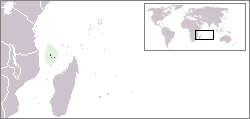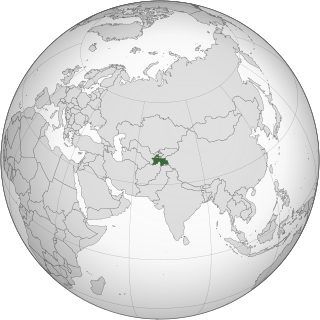Homo LesBische Federatie Nederland (HLBF.nl) is an organization for gay, lesbian, and bisexual people in the Netherlands, Netherlands Antilles, and Aruba. The organization was founded June 14, 2004 in Breda.

Lesbian, gay, bisexual, and transgender (LGBT) movements are social movements that advocate for LGBT people in society. Although there is not a primary or an overarching central organization that represents all LGBT people and their interests, numerous LGBT rights organizations are active worldwide. The first organization to promote LGBT rights was the Scientific-Humanitarian Committee, founded in 1897 in Berlin.
This is a list of notable events in the history of LGBT rights that took place in the year 2001.

Boris Ottokar Dittrich is a Dutch politician of the Democrats 66 (D66), jurist, author and human rights activist. He has been a member of the Senate since 11 June 2019.
Same-sex marriages are not performed in Aruba, Curaçao, or Sint Maarten, which are constituent countries of the Kingdom of the Netherlands. The islands were obliged after several court rulings to register any marriage registered in the Kingdom, but this primarily considers residency rights, and they do not have to give same-sex marriages the same legal effect as opposite-sex marriages. Marriage in the European territory of the Netherlands, as well as in the Caribbean municipalities of Bonaire, Sint Eustatius and Saba, is open to any two people irrespective of sex.

The Swedish Federation for Lesbian, Gay, Bisexual, Transgender and Queer Rights is a Swedish organization working for LGBT rights. Lawyer and social worker Trifa Shakely was elected as the new president in 2021.

Lesbian, gay, bisexual, and transgender (LGBT) rights in the Netherlands are among the most advanced in the world. Same-sex sexual activity was legalized in 1811 after France invaded the country and installed the Napoleonic Code, erasing any remaining sodomy laws. No more sodomy laws were enacted after the country received independence. An age of consent equal with that of heterosexual activity was put in place in 1971. During the late 20th century, awareness surrounding homosexuality grew and society became more tolerant of gay and bisexual people. The changes eventually led to homosexuality's declassification as a mental illness in 1973 and a ban on discrimination based on sexual orientation in the military. The Equal Treatment Act 1994 bans discrimination on account of sexual orientation in employment, housing, public accommodations, and other areas. This was extended in 2019 to include discrimination based on gender identity, gender expression and sex characteristics. After the country began granting same-sex couples registered partnerships benefits in 1998, the Netherlands became the first country in the world to legalize same-sex marriage in 2001. Same-sex joint and stepchild adoption are also permitted, and lesbian couples can access IVF as well.

COC Nederland, also known as COC Netherlands, is a Dutch LGBTQ+ rights group founded in 1946. COC originally stood for Cultuur en Ontspanningscentrum, which was intended as a "cover" name for its real purpose. It is the oldest existing LGBT organization in the world.

Lesbian, gay, bisexual, and transgender (LGBT) people in Comoros face legal challenges not experienced by non-LGBT residents. LGBT persons are regularly prosecuted by the government and additionally face stigmatization among the broader population.

Georgia Equality is the largest LGBTQ rights advocacy group in Georgia. Their mission is to advance fairness, safety and opportunity for lesbian, gay, bisexual, transgender, queer and allied communities in Georgia. Their work has included political endorsements, boycotts, protests, advertising campaigns, and lobbying.

Lesbian, gay, bisexual, and transgender (LGBT) people in Tajikistan face significant challenges not experienced by non-LGBT residents. Both male and female types of same-sex sexual activity are legal in Tajikistan, but same-sex couples and households headed by same-sex couples are not eligible for the same legal protections available to heterosexual married couples.
The Lesbian and Gay Equality Project (LGEP), formerly known as the National Coalition for Gay and Lesbian Equality (NCGLE), is a non-profit, non-governmental organization in South Africa that focuses on the expansion of LGBT civil rights in South Africa and other countries in sub-Saharan Africa. It was co-founded by Zackie Achmat in 1994, and successfully lobbied for the inclusion of sexual orientation as a basis for non-discrimination laws in the country after the end of the apartheid period. The organization has continued to operate after South Africa officially legalized same-sex marriage in 2005. Its work includes "law reform, lobbying, litigation, advocacy, employment equity, leadership training and development."

Sofia Pride Parade is a peaceful march of LGBT people and their relatives and friends, which combines social and political protest with entertainment such as live concerts. It takes place every year in the month of June in Bulgaria's capital Sofia since 2008. The first Sofia Pride parade was held on June 28, 2008, on the same date as the Stonewall riots in New York City that occurred in 1969. Same-sex sexual activity became legal on May 1, 1968. Between 1968 and the collapse of communism in 1989, no publicly gay movements nor places of social gatherings existed. After democracy was reestablished in 1990, several gay bars and clubs opened doors in the capital of Sofia as well as in Varna and Plovdiv.
The Brazilian Gay, Lesbian, Bisexual, Travesti, Transsexual and Intersex Association, is a national network made up of 203 member groups, including about 141 gay, lesbian, and trans groups, and about 62 "collaborating" organizations which are involved with human rights and AIDS. Since July 2009, ABGLT has consultative status with the United Nations Economic and Social Council.

The National Council for the Rights of Lesbian, Gay, Bisexual, Transvestite, Transsexual, Queer, Intersex, Asexual and Other People, formerly the National Council for Combating Discrimination and Promoting the Rights of Lesbians, Gays, Bisexuals, Transvestites and Transsexuals until 2018, is an executive council under the Ministry of Human Rights and Citizenship. The is located in Brasília, in the Federal District, in Brazil.

The intersex flag is a pride flag representing intersex individuals and the intersex community. It was created by Morgan Carpenter of Intersex Human Rights Australia in 2013.
Solidarity for LGBT Human Rights of Korea is an LGBT rights and counselling organization created on September 9, 1997 in Seoul, South Korea. The current representative of the organization is Kwak Yi-kyong. Former representatives of the group were Jeong Yol and Chang Byongkeon.

Lesbian, gay, bisexual, and transgender (LGBT) persons in Curaçao may face legal challenges not experienced by non-LGBT residents. Both male and female same-sex sexual activity are legal in Curaçao. Discrimination on the basis of "heterosexual or homosexual orientation" is outlawed by the Curaçao Criminal Code. Despite this, same-sex marriage and adoption are still not recognised.
Srishti Madurai was established on 2 September 2011 by Gopi Shankar Madurai as the first genderqueer and LGBT student volunteer group designed to address the problems of LGBT people in the non-metro cities of Tamil Nadu. In October 2011 Srishti Madurai launched India's first helpline for intersex, genderqueer, and LGBT people at Madurai. In June 2013 the helpline turned to offer service for 24 hours with a tagline "Just having someone understanding to talk to can save a life". Srishti Madurai also organized Asia's first Genderqueer Pride Parade at Madurai.